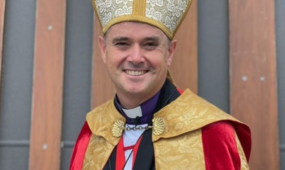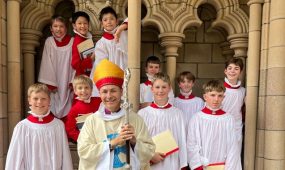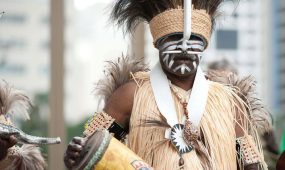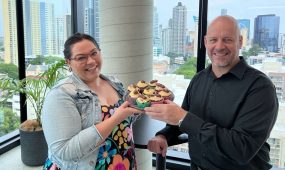Q&A with Bishop Daniel Abot and Rachel Jimma
Spotlight Q&A
Meet spouses South Sudan-based Bishop Daniel Abot and Toowoomba-based Rachel Jimma, and find out about their faith journeys, their refugee camp experiences and Bishop Daniel’s reconciliation and orphanage work in South Sudan
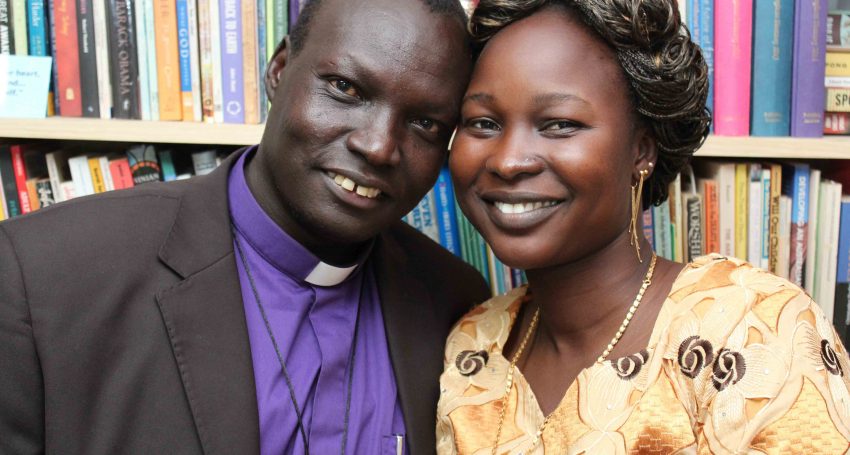
Story Timeline
Priest and Priest Spouse: Ministry Together
During the height of the civil war in Sudan in 1986, 12-year-old Daniel Abot was exiled to Dima Refugee Camp, Ethiopia. He, as part of the Lost Boys of Sudan, walked a thousand miles from Duk village in South Sudan to Ethiopia. He spent six years in Ethiopia and nine years in the Kakuma Refugee Camp, Kenya, where he and his wife Rachel met. In 2003, Bishop Daniel was priested in the Episcopal Church in Nairobi, Kenya. After coming to Australia in 2003, Bishop Daniel studied and worked for Anglicare, where he assisted newly-arrived refugees.
In 2014, the Diocese of Duk was established, and the people of Duk County, South Sudan, proposed that Daniel be their first Bishop. After consultation with Rachel, Daniel returned home to South Sudan in September 2014. Daniel was consecrated as the Bishop of Dioceses of Duk in the Episcopal Church of South Sudan and Sudan on 30 November 2014. The Duk Diocese is on the geographic border of two ethnic groups, the Dinka and Nuer. Bishop Daniel sees his current task as peacemaker to help bring peace between the two tribes. He is also involved in an orphanage project which addresses child trafficking; in the building of guesthouses in Duk to generate revenue; in clergy capacity development; and, in adult education focusing on eradicating child marriage. While Bishop Daniel is in South Sudan, Rachel supports his groundbreaking work and takes care of their seven children in Toowoomba.
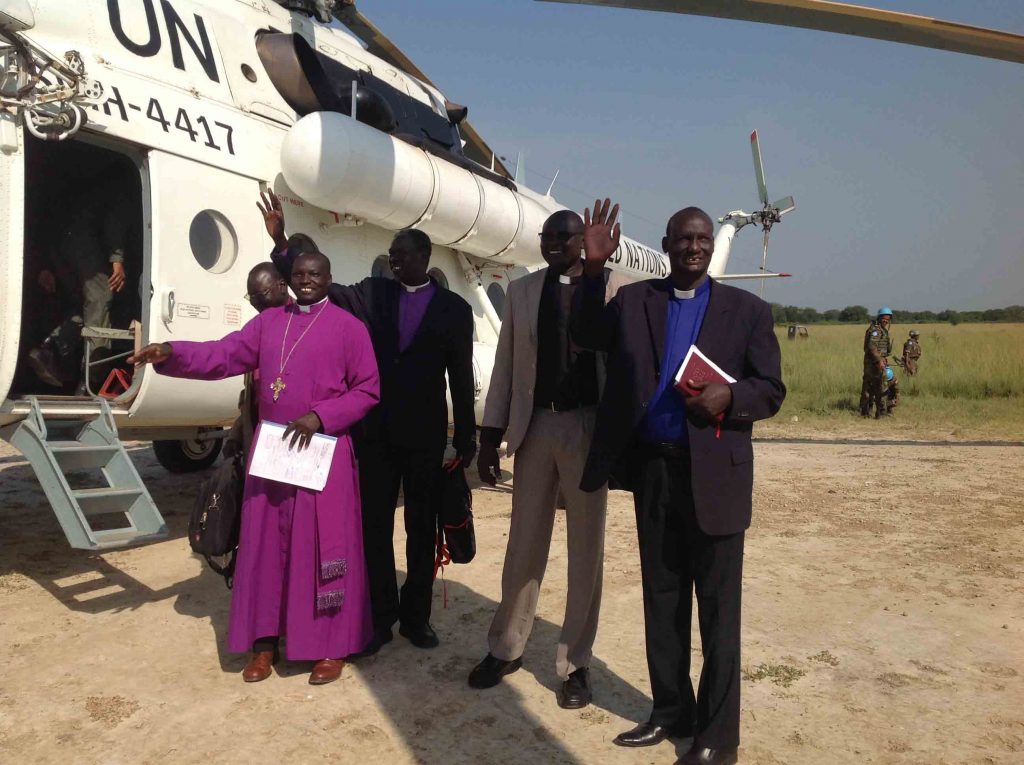
Bishop Daniel Abot on a United Nations peacekeeping mission
Can you tell us a little about your journey as a married couple together?
Bishop Daniel and Rachel: We met in 1993 in a refugee camp in Kenya, and we married two years later. We have seven children – three boys and four girls.
Where do you currently live and where do you worship?
Bishop Daniel: We live in Toowoomba, although I also spend a lot of time in South Sudan. Returning to South Sudan to serve as Bishop wasn’t an easy decision, as I had to leave my job and family in Australia to return to Duk, a place destroyed by decades of wars. I am not paid in my role as Bishop of Duk and I don’t have a permanent residence, so I sleep in any hut that I can find, and spend most of my time in the bush supporting my people.
Advertisement
The Diocese of Duk is right at the crossroads of the conflict zone and close to 66,000 of my flock live in the displaced camps within South Sudan, and in refugee camps in Kenya and Uganda. Only about 10 per cent of these people live in the actual Diocesan geographical area. Duk has 47 offshoots islands in the Sudd wetlands adjacent to Duk. The people of Duk inhabit these islands, which are only accessible by airboats.
When I am visiting my family in Toowoomba, I worship with Rachel and our seven children in two Anglican Churches – St James’ where a service is said in Dinka and St Bart’s where the services are said in English.
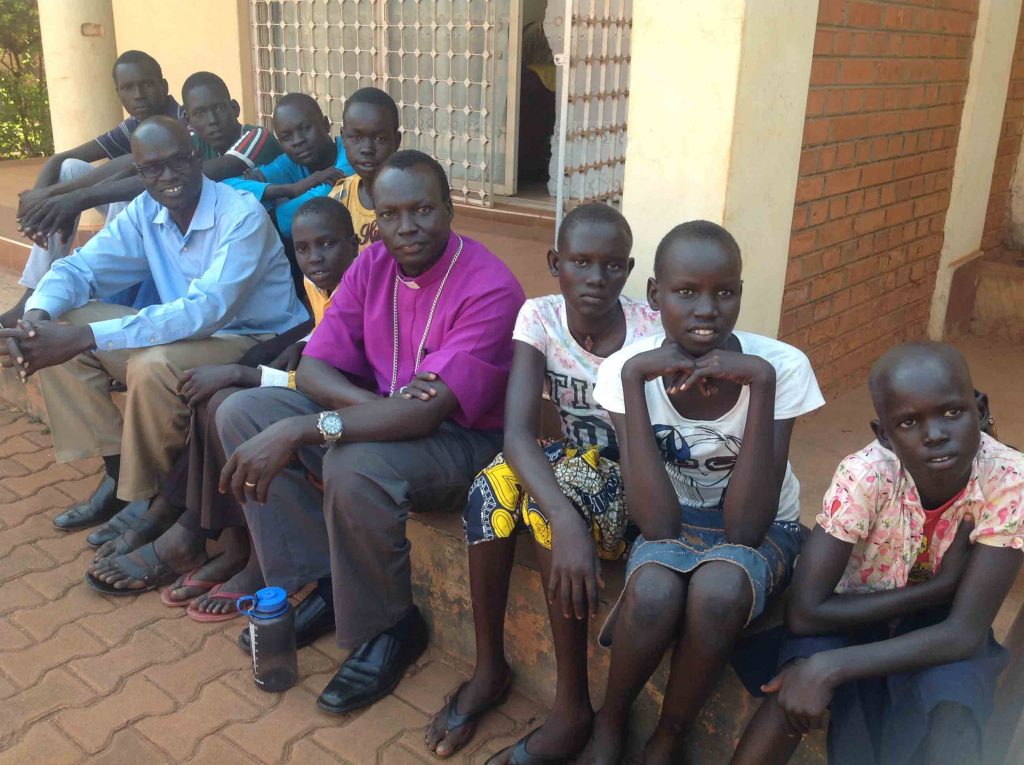
Bishop Daniel Abot and some of the children he helps support in South Sudan
How long have you been involved in the Anglican Church and in what roles?
Bishop Daniel: I was ordained a Deacon in the refugee camp on 30 May 1999, and then priested on 16 November 2003 in Nairobi in Kenya, just a week before arriving in Toowoomba in 2003. I was consecrated Bishop on 30 November 2014 in South Sudan.
Rachel: I have been involved in the Anglican Church since before we got married. I was a Sunday School teacher and youth leader in an Anglican Church in the refugee camp in Kenya.
Advertisement
What is your current role and what does your role involve?
Bishop Daniel: I serve as Bishop of the Diocese of Duk in South Sudan at the cross roads of the conflict zone where two of the largest groups, the Dinka and Nuer, in South Sudan clash all the time. I volunteer as Bishop to support peace initiatives between the Dinka and Nuer.
Rachel: I support my husband in his role and care for our young family and their needs.
What projects and activities are you currently working on?
Bishop Daniel: I am currently working on an integrated project to support Duk orphans and other children. This project addresses education, health and nutrition and child trafficking, and helps find homes for orphaned and disadvantaged children. I am also focused on raising up new leaders within the Diocese of Duk. I am also working on peace and reconciliation initiatives between tribal groups. I saw a very strong need for our church and community leaders to rise above tribal loyalties and work for peace and reconciliation for the better of our country.
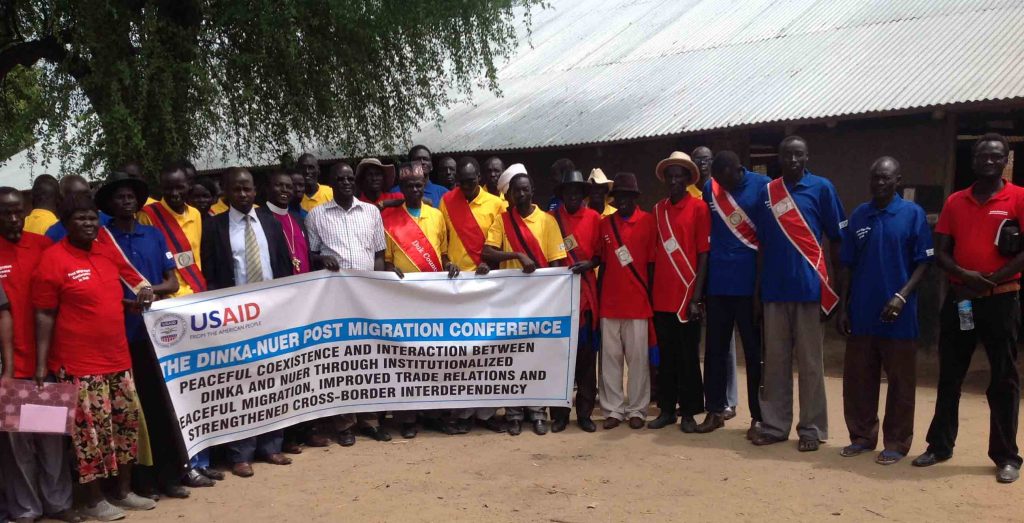
Bishop Daniel Abot with other community leaders in the region who came together for peace-talks, which were facilitated by USAID and the Church
What have been the highlights of your roles so far?
Bishop Daniel: In South Sudan it has been very pleasing to see individuals and groups who have been enemies come together and work through their differences.
Rachel: Seeing my children progress in life, even when they face challenges, and also seeing my children care for one another.
What have been the key challenges of your roles so far?
Bishop Daniel: Operating in dangerous zones and seeing people suffer, sometimes being killed and having their children kidnapped. In November 2017, 51 people lost their lives in conflict, including women and children. 56 children were abducted, and only three returned. 19 others, mostly children, sustained serious injuries.
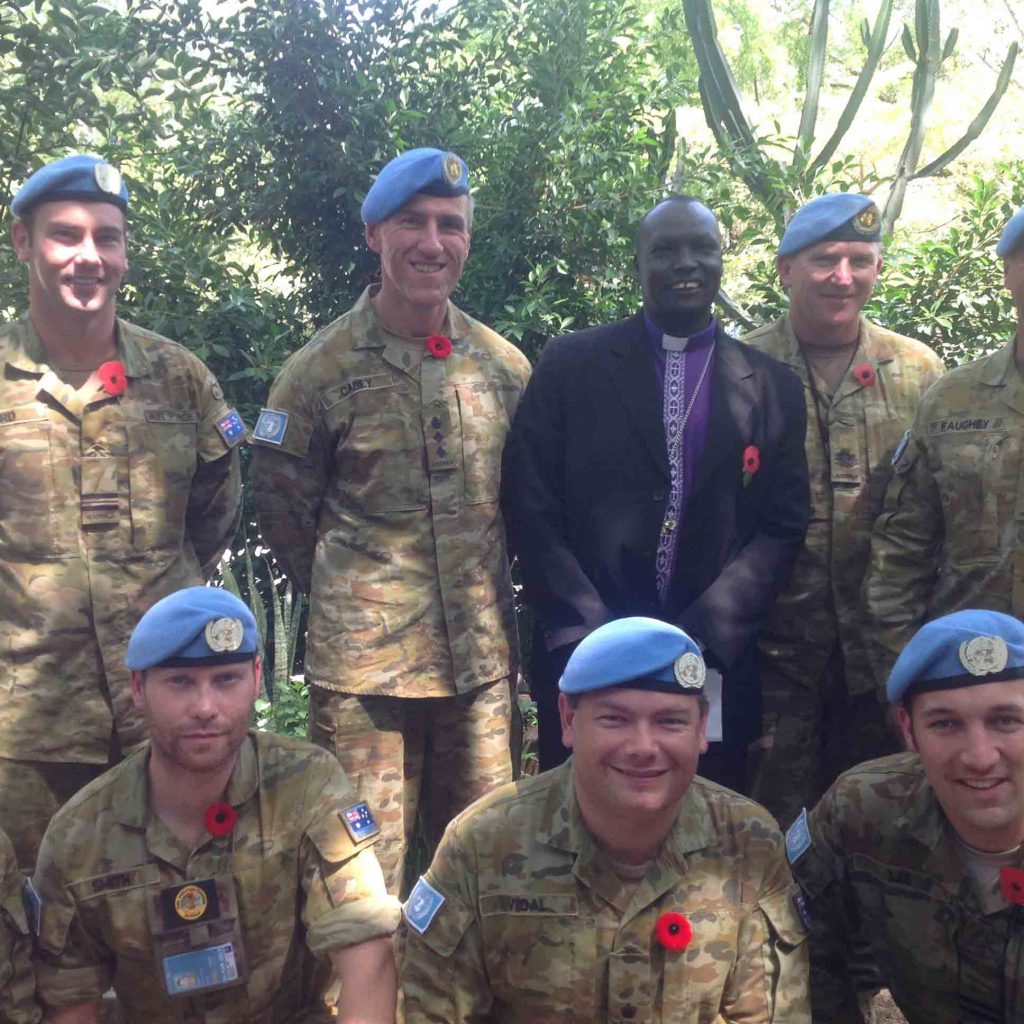
Bishop Daniel Abot with Australian soldiers involved in a UN peacekeeping mission in South Sudan: “So happy to see Australians making a difference in another part of the world!”
What are your plans and goals for the next 12 months?
Bishop Daniel and Rachel: God willing, as per James 4.13-15, we will attend the Lambeth Conference for Bishops and their spouses in England next year. In South Sudan we want to see lasting peace as a basis for stability and progress so that people can return to their homes.
How can members of our Diocese support you in your mission?
Bishop Daniel: Prayer is always a key. As well as prayer, practical support is always welcome, especially for the children in orphanage homes and refugee camps in both Uganda and Kenya.
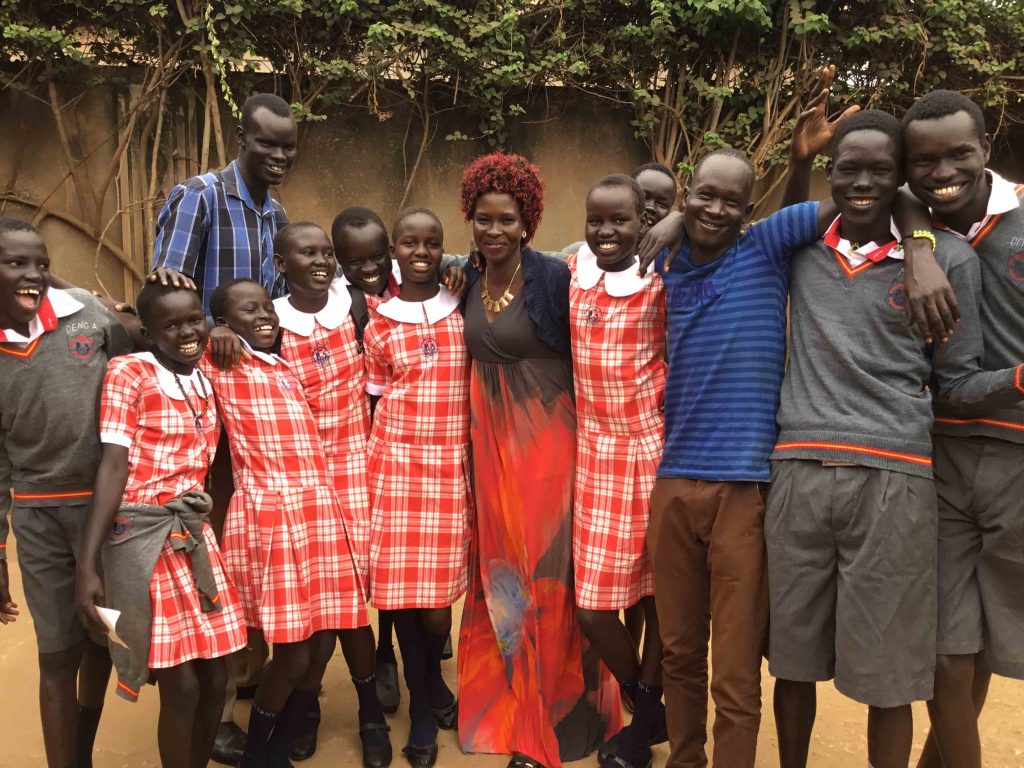
These children were picked among South Sudanese orphans and are now studying in Uganda, thanks to a generous donation from a person in Brisbane
What advice do you have for couples who are new to the roles of being a clergy person and a spouse of a clergy person?
Bishop Daniel and Rachel: Togetherness, even when physically apart, is so important. Being of the same mind (Philippians 2.2) and regular communication are essential. We talk on the phone every day when we are apart, as Daniel is now based in South Sudan for the sake of the gospel.
Can you tell us a little about your personal faith journeys?
Bishop Daniel: Though I was baptised as a child and grew up in a nominal Christian home, I only came to a personal faith during my own time on the run in exile in Ethiopia and then in the refugee camp in Kenya. I was one of the ‘lost boys’ of South Sudan, formerly Sudan.
Rachel: I lost contact with my parents when I was six and was raised by my grandmother. It was as I grew up in a refugee camp that I came to a personal Christian faith.
How does your faith inspire you and shape your outlook, life choices and character?
Bishop Daniel: My circumstances developed in me perseverance and hope, without which I would not have survived without my father and mother in a refugee camp in Ethiopia and Kenya for many years.
Rachel: This is true for me as well, as our life choices are often shaped by these two qualities, perseverance and hope.
What is your favourite scripture and why?
Bishop Daniel: Psalm 23: “The Lord is my shepherd, I lack nothing.” When you find yourself in a nation where leaders are not doing the will of God, it is only Divine provision that sustains you. Rachel and I would have not have made it without God’s provision and protection in the refugee camp.
Rachel: Romans 8: “Who shall separate me from the love of God?” Why this verse? Because the joy of the Lord is always there with his people regardless.
What person of faith inspires you the most and why?
Bishop Daniel: In my teenage years, I was inspired by reading about the visionary and hard-working Italian Catholic missionary Bishop, now Saint, Daniel Comboni who worked in Khartoum in the 19th Century. Bishop Comboni was the founder of both the Comboni Missionaries of the Heart of Jesus and the Comboni Missionary Sisters who transform many lives in Africa.
What are the primary strengths of the Church and what is the best way to make the most of these for the benefit of our communities?
Bishop Daniel and Rachel: Its variety, its sense of purpose and its commitment to make a difference locally and in the world.
What are the primary challenges currently encountered by the Church and what is the best way to overcome these for the benefit of our communities?
Bishop Daniel: Early Christians used to connect to God and to one another through the unifying power of the Holy Spirit. But the 21st Century world’s busyness in our lives distracts us, so that every moment pulls us away from God’s presence. The Church must prioritise its vocation as presenters of God’s presence in the world. Church should find ways to encourage physical gatherings, including meals together in neighbourhoods, bodily movement in worship, and shaking hands and hugging each other to promote relationships among Christians.
What do you do in your free time to recharge and relax?
Bishop Daniel: Reading the Bible and listening to Christian music.
What is your favourite movie and why?
Bishop Daniel: I like to watch films about Jesus and play with my children, as I miss them a lot when I am in South Sudan.
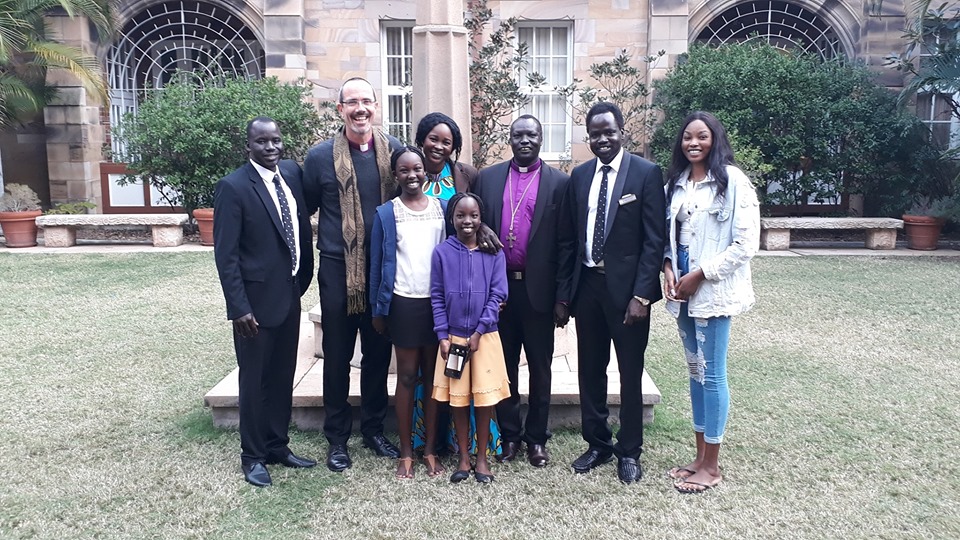
Bishop Daniel Abot (third from right) and Rachel Jimma (third from left) with three of their daughters, Bishop Cam Venables and other participants at the South Sudanese and Sudanese Prayer Service on 7 July 2019 at St John’s Anglican Cathedral
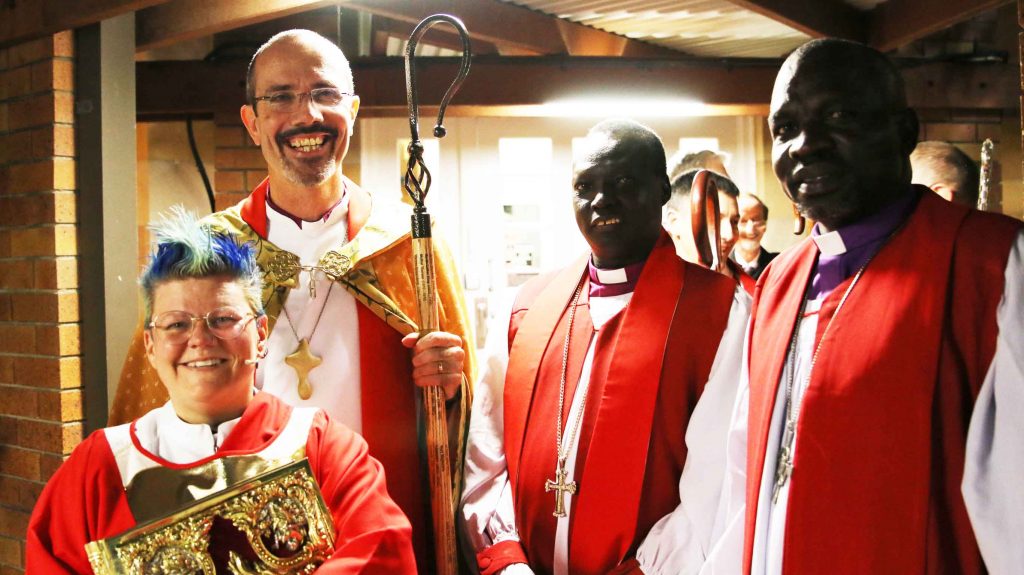
Assembling outside the Cathedral before the processional at the Friday 28 June 2019 Synod Eucharistic service: Bishop Cam Venables, The Rev’d Danni Clark, Bishop Daniel Deng Abot who is the Bishop of Duk Diocese (Episcopal Church of South Sudan), and Bishop Peter Mayom who is the Bishop of Malek Diocese (Episcopal Church of South Sudan).
Editor’s note (25/03/21): The text of this Q&A was updated.

